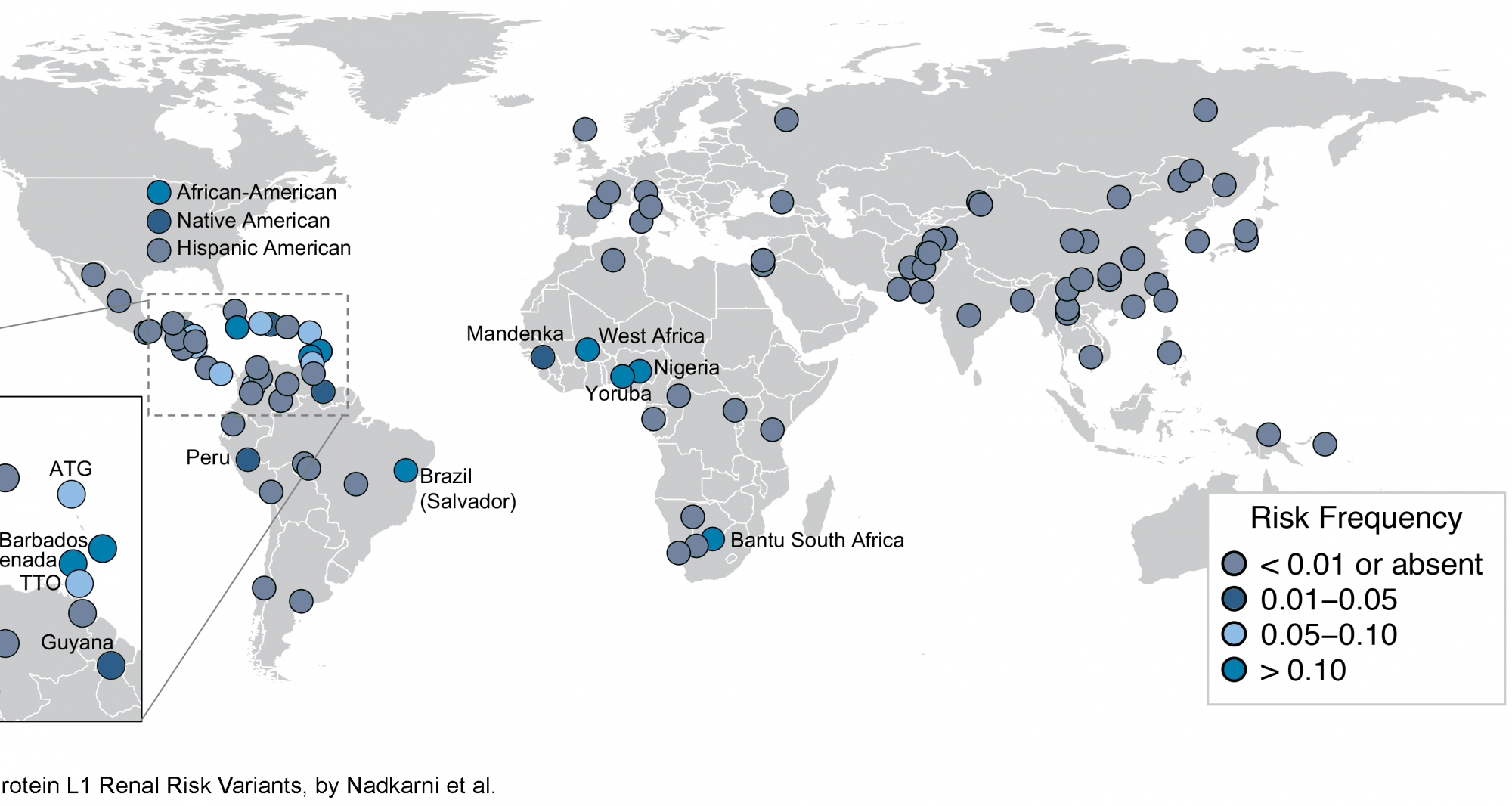June 19, 2019
The vast majority of genomic data scientists have collected focuses on people of European descent, overlooking minority populations. As genetic-based precision medicine grows, this data gap means minorities may lack access to medical care that could reduce growing chronic disease disparities among racial and ethnic groups.
Precision medicine is an approach that allows doctors to select treatments that are most likely to be effective in protecting a patient’s health or treating their disease, based on an understanding of the patient’s individual genes, environment and lifestyle. This approach allows doctors and researchers to better predict which treatments and prevention strategies will work for which people, but it can’t be used effectively without access to accurate information for that particular individual or group.
A team of researchers from institutions across the country, including the University of North Carolina at Chapel Hill, analyzed phenotypes of nearly 50,000 non-European individuals, identifying 65 new associations and replicating 1,400 associations between genes and diseases, highlighting the need for equitable inclusion of diverse populations in genetic research.

Dr. Misa Graff

Dr. Kari North
Kari North, PhD, a professor in the Department of Epidemiology at the UNC Gillings School for Global Public Health, and Misa Graff, PhD, assistant professor in same department, are co-authors on the paper “Genetic Diversity Improves Our Understanding of Complex Trait Architecture,” which was published June 19 in Nature. North was the senior co-leader and oversaw the research and Graff was a co-junior lead.





